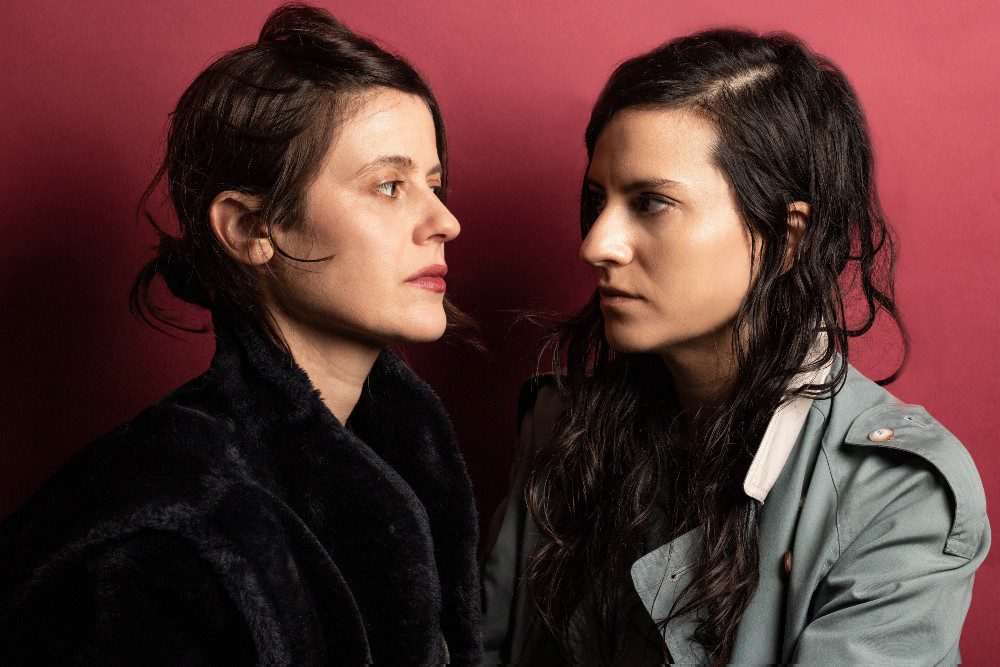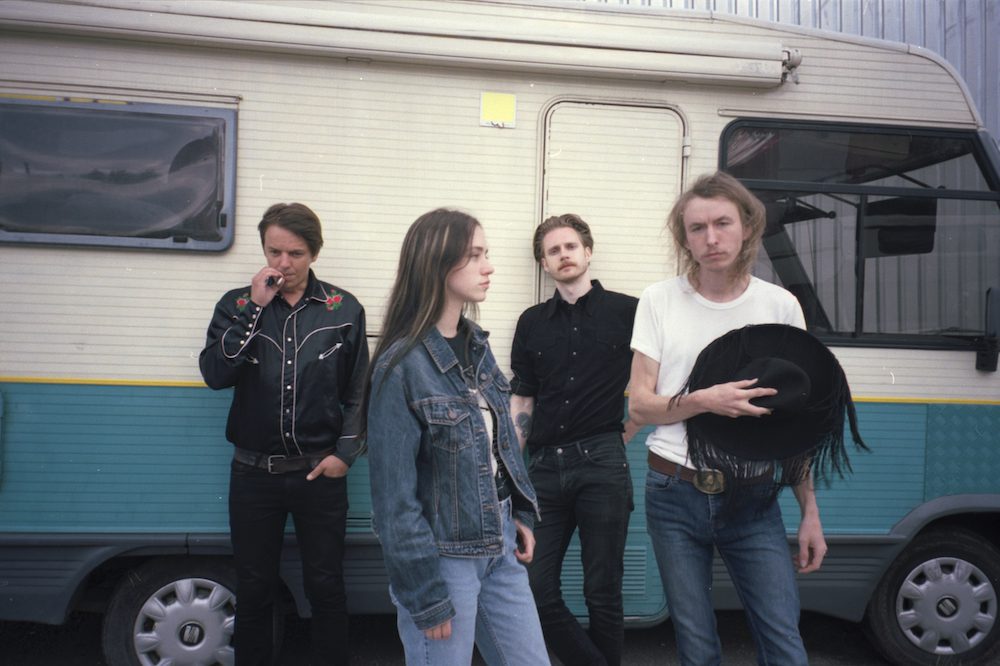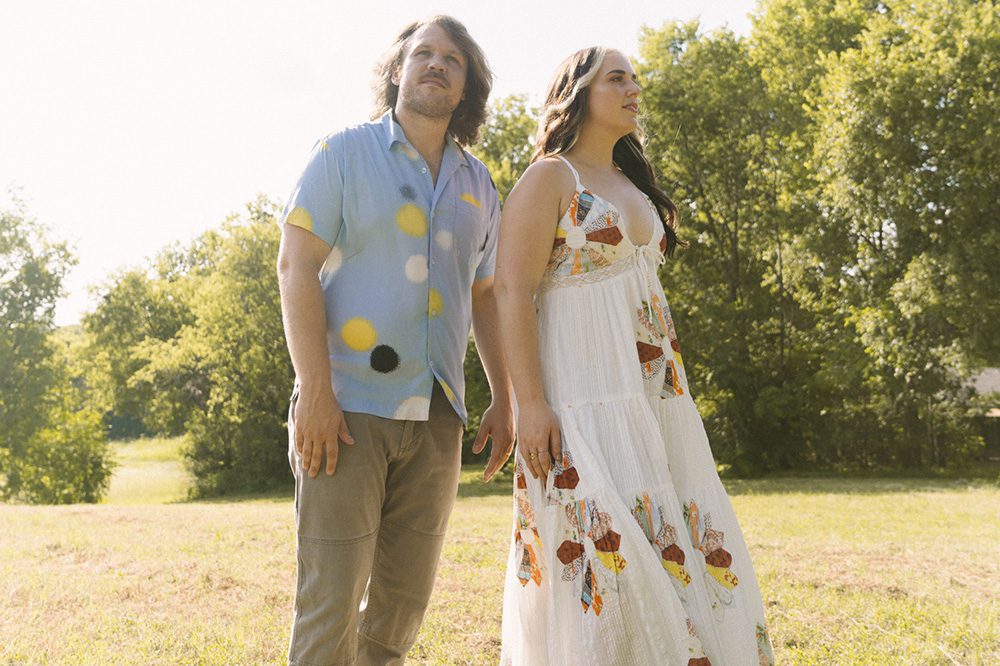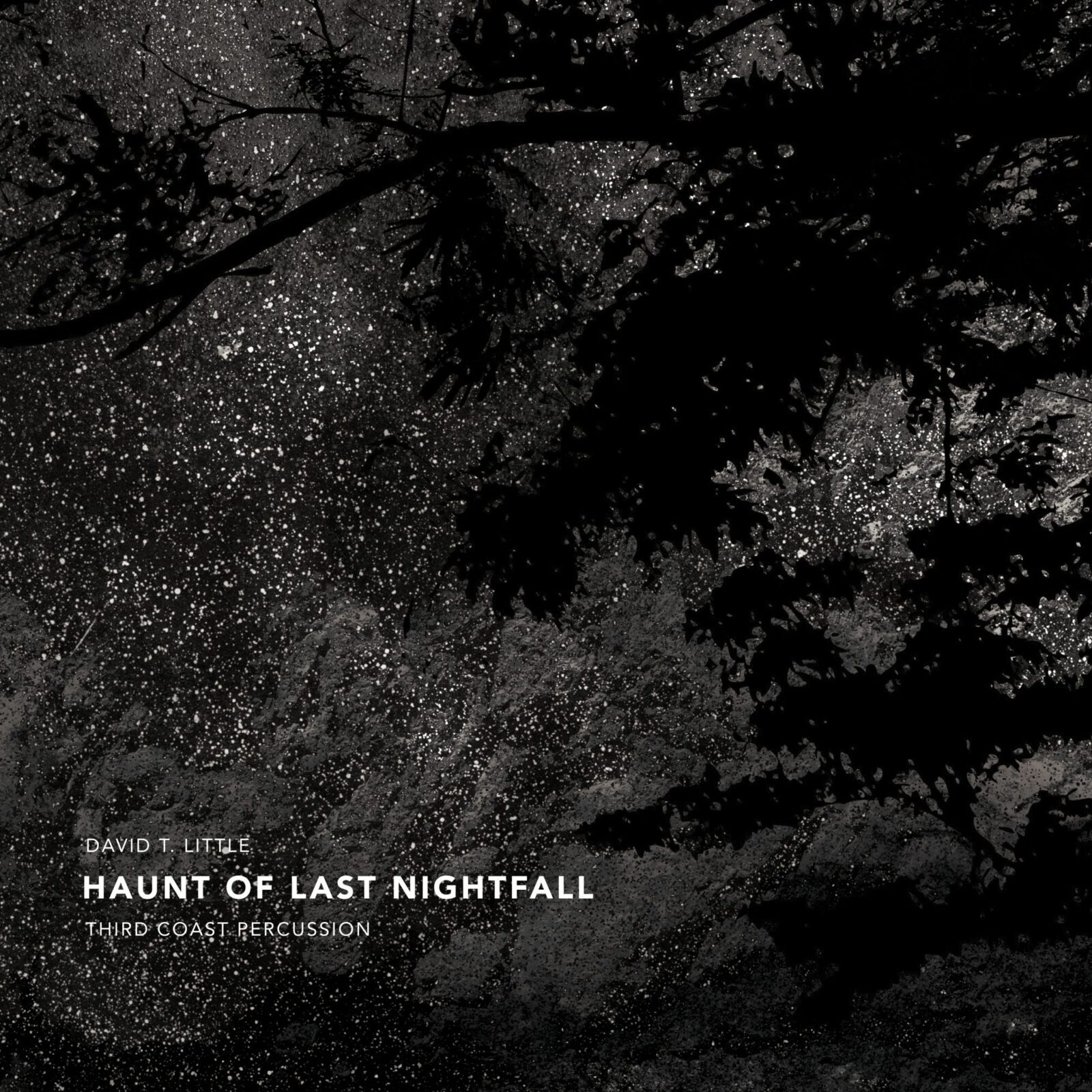Vákoum Unpack an Anxious Mind to Become One with the Body in “Airotic” Video Premiere


On their debut full-length LP Linchpin, experimental duo Vákoum offer up an expansive array of rhythmic, textural, and tonal complexity, utilizing unexpected transitions between effected guitars, a blend of acoustic and electronic drum beats, and ethereal Bulgarian-inspired vocals to create a sound that mirrors the many mood swings of an anxious human mind. Though certainly relevant in these unprecedented times, these are themes Vákoum has been unpacking since their very inception.
Multi-instrumentalists, composers, and producers Kelli Rudick and Natalia Rudick-Padilla formed Vákoum in 2014, upon meeting at a guitar clinic at now-defunct creative hub The End in Greenpoint, Brooklyn. Since then, they’ve released an EP (2017’s Home for Home), toured with The Album Leaf, and refined a sound inspired by the likes of Björk, Blonde Redhead, and Holly Herndon. They’re due to drop Linchpin February 19th, and they premiere the video for the album’s second single “Airotic” on Audiofemme today.
“Airotic” was written pre-COVID, though it translates well to our present moment. The track guides the listener through the stages of an anxiety attack, using sonic transitions to mark the initial moment of panic leaden with fear and dread, through the disconnect we feel from our body and breath until the moment we finally let go. The song is about grounding through breath, a skill Kelli explains she only honed in recent years. ‘“Airotic’ came from this visualization of the breath,” she says. “There’s so much power in conscious breathing, and most people don’t know how to breathe. I feel like I didn’t know how to breathe until a couple years ago, and so to me it’s the only thing that’s left when things become really hard, and dark, and you lose control. It’s the only thing to anchor you to the ground.”
Directed by Adrian Landeros and featuring dancer Yansi Mendez, the video’s choreography was entirely improvised. They had been filming all day; Mendez was cold and exhausted. They stopped production but the cameras were still rolling when something came upon her and she started moving, capturing the song’s meaning through movement entirely led by intuition, herself becoming grounded, becoming one with her body.
The video is edited to further articulate the feeling of a violent mood swing by rushing through clipped, saturated images of the natural world: crinkling leaves, sparks of flame. But around the 45-second mark these wildly flashing images stop, transitioning to the dancer’s organic movements just as the song bursts wide open into the Vákoum’s haunting vocals. Mendez flails wildly and the manic images return, until the mood shifts again and her movements become more gentle, the imagery cuts in less violently, the beat slows and the vocals become more drawn-out, almost akin to chanting.
At times Mendez pauses completely; we can see the breath rise and fall in her exposed ribcage. In the final minute of the video her movement picks up again but she is now covered in blood, perhaps signifying a rebirth from her own dread to a new space of letting go. The blood is “something human beings are so ashamed of, and scared of, and disgusted by. It’s like a part of us. It’s everywhere in our body, and yet we’re so scared of it,” Kelli explains. “At the end, when she starts dancing with it, it just felt like a baby coming out of the womb.” Blood also figures heavily in the video for Vákoum’s previous single “Spark,” also directed by Landeros, establishing an intense visual language particular to the duo.
While the track articulates the mechanization of an anxious mind, Linchpin as a whole also serves to illustrate the way anxiety can affect a relationship between two people. Married in real life, Kelli describes herself as the more neurotic of the pair, leaning on Natalia for support in these difficult emotions. Natalia explains that it’s no less dreadful to witness these moments of panic in a loved one from the outside. “There is a sense of solitude, and helplessness, from not being able to reach in,” she says. “I think when you see or feel that main shift of the song, you hear the lyrics say, ‘It’s you in it, untrue isn’t it, enough enough.’ And I think it’s really beautiful to be able to hold that space for the other person, and speak almost kind of softer, and change the filters in which life is being viewed.”
The pair describes music as their marriage counselor. Their musical collaboration has helped them to learn more about each other and resolve triggers and other issues, which is where the album’s title comes in, a linchpin being the tool that connects a wheel to an axel. “Things that remain unspoken that you sometimes, for some reason, are afraid to say, you’re able to put out there in music. Or even a feeling, which is maybe this transition or this chord or whatever,” Natalia explains. “It’s a beautiful thing about our relationship that we have a way of feeling music that is extremely similar, and sometimes it can be spoken that way, so you’re not hurting anybody, you’re not saying the wrong thing, you’re just putting it out there with music and the other one picks up on it in a way nothing else does.” In other words, it provides a vehicle for deeper connection, for more difficult conversations.
Despite the limitations and frustrations inherent to releasing an album at the height of a pandemic, both Kelli and Natalia warn against the overwhelming sense of pessimism so many feel. They continue to practice every other day, and have used this time to become more disciplined in learning new technologies to help them share their album with a wider audience, focusing on streaming in place of live performance. Kelli laments the pent-up energy that comes with releasing a new record without a live vehicle for sharing and experiencing it with others, but ultimately says, “What it comes down to is that we have to just keep doing what we love, and no matter what happens, that’s the most important thing, just to keep creating.” Natalia agrees, once again emphasizing the linchpin that holds their creative and personal relationships together: “We’re not as affected in that regard, because we always make music for ourselves. It’s kind of a newer thing to want to share it. And so it’s a little bit like home anyway, with an industry or not. I feel complete.”
Follow Vákoum on Facebook and Instagram for ongoing updates.




